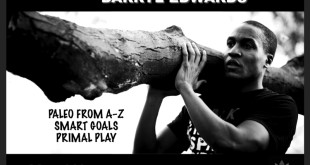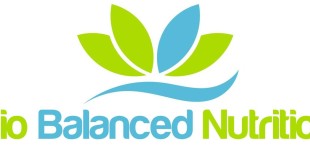“It gives me so much energy, much more than I ever had when I was vegetarian.”
Welcome to part one of our two-part interview with Elaine Vinall of Bio Balanced Nutrition.
Elaine is a qualified Nutritional Therapist. She has a passion for good food, healthy living, and helping others discover their ideal diet based on scientific evidence, and clinical experience. Her nutrition practice is based in Sutton Coldfield in the UK where she offers one to one nutrition consultations and provides individualised nutrition programmes. She also offers telephone and Skype consultations. For more information visit Bio Balanced Nutrition.
What first attracted you to a Paleo and Ancestral Health aligned approach to living?
I adopted a paleo diet around four years ago. I was experiencing some health challenges at the time caused by Helicobacter pylori (bacteria) overgrowth in the stomach. This caused many health issues including poor digestion, inflamed gut, and my inability to effectively break down and digest food which resulted in leaky gut and multiple food sensitivities, followed by systemic arthritis pain, fatigue and brain fog. I was vegetarian at the time, had been for over twenty years, and was reacting to all of the staples of a vegetarian diet including eggs, dairy, beans, lentils, nuts and seeds. My joints would flare up within a couple of hours of eating any of these foods. I tried to treat the infection using a natural method, but was unsuccessful, and had no alternative than to resort to the conventional way of eradicating Hpylori infection with triple therapy antibiotic treatment.
In order to repair my gut from the infection and the intense antibiotic treatment I knew I had to change my diet, my usual diet of quinoa, beans and lentils was too difficult to digest and I was already down to one meal per day, eating was painful because my stomach was so inflamed. After researching it seemed an autoimmune paleo diet would best help my condition. It eliminates all of the inflammatory and difficult to digest foods and replaces them with a variety of anti-inflammatory nutrient-dense and gut-healing foods. My vegetarian diet had to go because vegetarian proteins are difficult to digest. Beans, nuts, and seeds contain lectins and nutrient inhibitors called phytates that have been shown to be problematic for leaky gut and autoimmune conditions. Going back to a basic ancestral way of eating made sense to heal myself in the long term. I can’t say it was an easy change to make after being vegetarian for so long, but I was in a lot of pain and my whole body felt inflamed, the pain of staying the same seemed much greater than the pain of change. At that stage I was willing to try anything!
What are the biggest benefits you’ve experienced?
Improved digestive health, elimination of pain and inflammation in bones and joints, more energy, restful sleep, and improved memory and concentration. The paleo diet is naturally higher in protein and fats and lower in carbohydrates than most other diets, which is great for helping to eliminate excess body fat. I now feel satiated for hours after eating, my blood sugar is naturally balanced, and I no longer feel the need to snack between meals. This initially resulted in weight loss and has enabled me to maintain my ideal body weight. The main reason I’ve managed to stick with the diet is because of how good it makes me feel, it gives me so much energy, much more than I ever had when I was vegetarian. This is not to say a vegetarian diet cannot be healthy, some people do very well on a vegetarian diet. We are all unique. Diets and lifestyle choices affect our physiology differently depending on our genetic makeup, and our current state of health. But for me, I think a vegetarian diet was a disaster waiting to happen.
What were the biggest obstacles and challenges you faced when transitioning to Paleo?
Adapting to eating meat again after twenty years was quite a challenge to say the least. I was vegetarian for ethical reasons. Factory farming is something I’ve strongly opposed most of my life – since I was old enough to understand it. This was my biggest obstacle, but it was one I overcame quite quickly. With a little research I learned where to source quality pasture raised meats. Thankfully now there is a much higher demand for grass-fed meat, so it’s becoming more readily available. You don’t have to take special trips to the farm anymore; you can order meat boxes online and have them delivered to your door. It’s great more people are starting to realise that not only “you are what you eat” but “you are what you eat eats”. Conventional farms produce diseased animals; diseased animals produce toxic wastes that affect our health and the health of the planet. With the increased prevalence of new diseases, due to toxins in the food supply as well as antibiotic resistant super bugs, it’s becoming clear that factory farming practices cannot sustain us long term.
What supplements do you take and why?
I always try to get nutrients through food if I can, however this isn’t always possible. Magnesium is my number one supplement, mainly because it’s difficult to get enough magnesium through diet. This is because our soils are depleted of minerals. We now need to eat three portions of vegetables to get the same nutrient value of one portion 100 years ago! But that’s not the only reason we may need to supplement. When we are under a lot of stress, physical or psychological, our bodies are burning through nutrients at a much faster rate. Magnesium is needed for more than 300 enzymatic reactions in the body so as you can imagine a deficiency will slow down every system. There are many forms of magnesium on the market. The form I recommend clients depends on their individual circumstances. But for general use magnesium glycinate is great, it’s bound to amino acid glycine which is easily absorbed through the gastrointestinal tract.
Great Lakes Collagen is a great powdered food supplement made from skin, bone and cartilage from grass-fed cows. I know it sounds gross, but the good thing is it doesn’t taste of anything so you can easily mix it into water, tea, coffee, smoothies etc. I originally started taking this for gut health as it is especially high in amino acids, glutamine and glycine which are fuels for repairing the gut, but I now take it to supplement my diet as and when needed. I sometimes take a tablespoon mixed with herbal tea before bed because glycine is an inhibitory neurotransmitter which helps to calm a restless mind. Glycine is one amino acid that is lacking in the typical western diet, mainly because most people are eating lots of muscle meats. Muscle meat is low in glycine and it’s especially high in amino acid methionine. Too much methionine can lead to high levels of an amino acid called homocysteine in the blood which can be toxic and has been linked to heart disease. So in order to avoid nutrient deficiencies we really should be consuming whole animal foods just as we did back in hunter-gatherer days. A good way to get a good ratio of amino acids and other nutrients in your diet is to make bone broth, and eat organ meats such as liver a couple of times per week. If you don’t want to do those things then Great Lakes Collagen is the next best thing to help balance your amino acid profile.
Green Pastures Fermented Cod Liver Oil is my favourite fish oil. I like it because it is a traditional food supplement that has a long history of use. Many of the modern fish oils on the market are highly processed and they need to have vitamins added to them to prevent them from oxidising. Fermented cod liver oil is naturally high in antioxidants and contains all of the fat soluble vitamins and nutrients particularly lacking in typical western diets. It’s a great gut healing food/supplement, and is good for joints, bone and skin health. I use it more in the winter as it’s a good source of vitamin D to help with immunity during the cold dark months of the year.
 Paleo Minds Paleo diet, fitness and lifestyle.
Paleo Minds Paleo diet, fitness and lifestyle.





